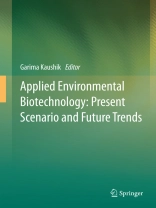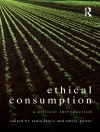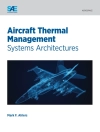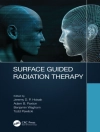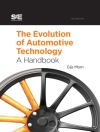Applied Environmental Biotechnology: Present Scenario and Future Trends is designed to serve as a reference book for students and researchers working in the area of applied environmental science. It presents various applications of environmental studies that involve the use of living organisms, bioprocesses engineering technology, and other fields in solving environmental problems like waste and waste waters. It includes not only the pure biological sciences such as genetics, microbiology, biochemistry and chemistry but also from outside the sphere of biology such as chemical engineering, bioprocess engineering, information technology, and biophysics.
Starting with the fundamentals of bioremediation, the book introduces various environmental applications such as bioremediation, phytoremediation, microbial diversity in conservation and exploration, in-silico approach to study the regulatory mechanisms and pathways of industrially important microorganisms biological phosphorous removal, ameliorative approaches for management of chromium phytotoxicity, sustainable production of biofuels from microalgae using a biorefinery approach, bioelectrochemical systems (BES) for microbial electroremediation and oil spill remediation.
The book has been designed to serve as comprehensive environmental biotechnology textbooks as well as wide-ranging reference books. Environmental remediation, pollution control, detection and monitoring are evaluated considering the achievement as well as the perspectives in the development of environmental biotechnology. Various relevant articles are chosen up to illustrate the main areas of environmental biotechnology: industrial waste water treatment, soil treatment, oil remediation, phytoremediation, microbial electro remediation and development of biofuels dealing with microbial and process engineering aspects. The distinct role of environmental biotechnology in future is emphasized considering the opportunities to contribute with new approached and directions in remediation of contaminated environment, minimising waste releases and development pollution prevention alternatives at before and end of pipe.
Зміст
Chapter 1 – Bioremediation Technology: A greener and sustainable approach for restoration of environmental pollution.- Chapter 2- Bioremediation of Distillery spent wash by microorganisms.- Chapter 3- In-silico approach to study the regulatory mechanisms and pathways of industrially important microorganisms.- Chapter 4- Microbial Diversity: Its Exploration and Need of Conservation.- Chapter 5 – Phytoremediation: A Biotechnological Intervention.- Chapter 6 – Ameliorative approaches for management of chromium phytotoxicity: Current promises and future directions.- Chapter 7 – Management of environmental phosphorus pollution using phytases: Current challenges and future prospects.- Chapter 8- Sustainable production of biofuels from microalgae using a biorefinery approach.- Chapter 9- Oil Spill Clean-up: Role of Environmental Biotechnology.- Chapter 10- Bioelectrochemical Systems (BES) for Microbial Electroremediation: An Advanced Wastewater Treatment Technology.
Про автора
Dr. Garima Kaushik is currently working as Assistant Professor in Department of Environmental Science, School of Earth Science, Central University of Rajasthan. A gold medallist in B. Sc. and M.Sc. from University of Rajasthan, she obtained Ph.D. in the field of Environmental Biotechnology, from Jawaharlal Nehru University, New Delhi. She has also served as an Environmental Consultant to World Bank funded projects with government of Rajasthan, namely; Health Care Waste Management (HCWM) and Rajasthan Rural Livelihood Project (RRLP). Her area of research interest is environmental microbiology and chiefly bioremediation of industrial effluents and biomedical waste management, and lately she is involved in enzymatic studies and their role in bioremediation processes. Another area of her research includes climate change and rural livelihoods and promotion of environmentally friendly activities in rural areas for adaptation to climate change. She is also pursuing her future research in the area on education for sustainable development.
Dr. Kaushik has published several research papers in the field of bioremediation, climate change adaptation in international and national journals and has contributed in organizing various conferences and seminars. She has also participated in various academic events at national and international level and is also the life member of many academic societies.
